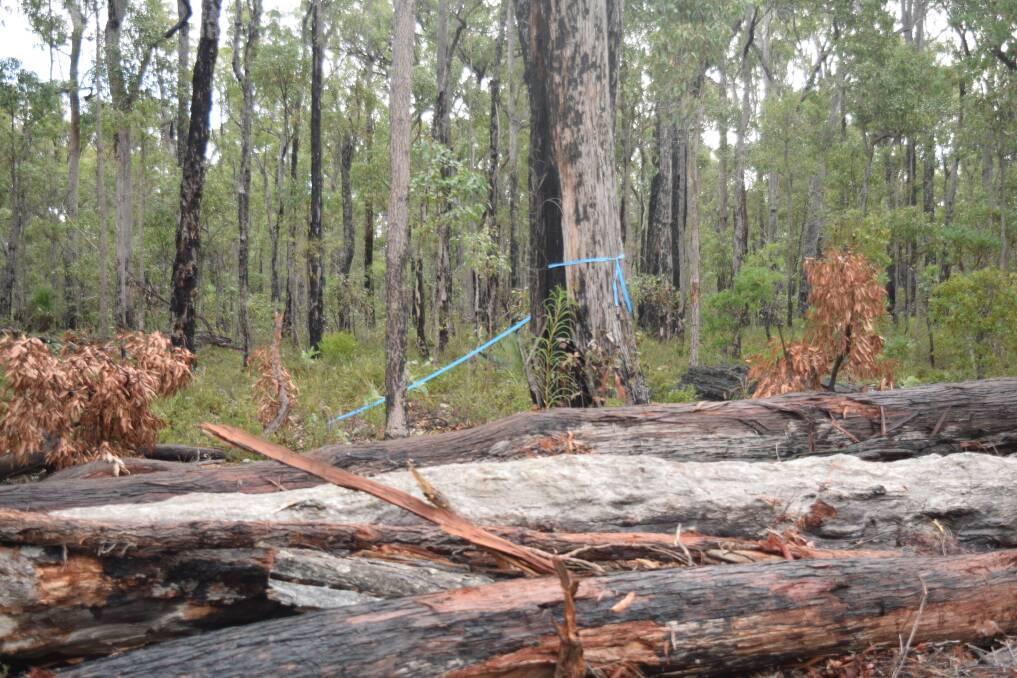
Conservation groups have hit out at the WA Government's climate policy stating its "like a like a lung cancer prevention policy that refuses to mention cigarettes."
Create a free account to read this article
$0/
(min cost $0)
or signup to continue reading
The policy released last week outlined an investment of $123.3 million to fund a range of initiatives to create a low carbon future and transition to net zero emissions by 2050.
One of the government's solutions to help offset carbon emissions in the state's climate policy was to invest in carbon farming and land regeneration initiatives.
WA Forest Alliance convener Jess Beckerling said the policy was "hopelessly inadequate."
"We are the only state in Australia where emissions continue to rise. We needed a policy with a clear target to achieve zero emissions by 2050 at the very latest, with interim targets along the way and legally binding mechanisms for ensuring that we stay on track."
Ms Beckerling said the International Union for Conservation of Nature (IUCN) had shown that one-third of climate mitigation we needed came from forest protection.
"Here in WA, where we have some of the most carbon dense forests on Earth, and we have a huge responsibility to draw down carbon, especially given our massive contribution of emissions every year.
"To do so the most obvious thing we can do is protect our forests from logging and clearing.
"Protecting native forests from logging has the potential to prevent up to 60 million tonnes of carbon dioxide being emitted over the next 10 years. This is a massive amount of carbon - the equivalent of taking 1.2 million cars off the roads - and we can do it right now."
Currently, limits are in place so less than 1 per cent of the available 850,000 hectares of native forest accessible to the Forest Products Commission is logged.
According to a recent film Cry of the Forests, that equates to around 10 football fields a day in South West forests.
A problem for conservationists is how areas of native forests are defined as old growth, which would protect them from being logged.
In WA's Karri forests if two tree stumps are found in a two-hectare area then it is classified as a native regrowth forest which could qualify it for logging in the state's Forest Management Plan.
In Jarrah dominated forests it is six stumps per four hectares.
Environment Minister Stephen Dawson said protecting and restoring native vegetation was a core element of their response to climate change.
"The Western Australian Climate Policy includes a $15 million investment a Carbon Farming and Land Restoration Program and actions to leverage the McGowan Government's commitment under Plan for Our Parks, which will increase the size of our conservation estate by more than 20 per cent," he said.
"The policy also includes a range of commitments for native vegetation rehabilitation and offsets which will support habitat restoration and protection of existing vegetation.
"The McGowan Government acknowledges that climate change is already having an impact on the State and has committed to measures which enhance resilience."
According to the IUCN, solutions about climate change entailing mass tree planting schemes were often costly, irrelevant to addressing climate and biodiversity and counterproductive.
The IUCN stated it was just as critical to protect what remaining primary forests were left from degradation and deforestation as it was to reduce fossil fuel emissions to mitigate climate change.
South West MLC Diane Evers said the climate change policy lacked ambition and the necessary environmental protections to address the climate crisis.
"Native forests are a valuable and irreplaceable source of environmental, economic and social benefits and forest management must address the urgent challenges of climate change and biodiversity loss.
"The McGowan Government's climate change policy fails to address this intrinsic value to Western Australia, just as it has done in its failure to address the logging and destruction of our forests.
"One page of the policy even refers to 'Enhancing our climate resilience' with a photo of beautiful WA native forest - despite no mention of how protecting and growing such forest can contribute to such resilience.
"I'm sick and tired of this Government paying lip service to its climate responsibilities - taking action does not mean putting pretty photos on documents to greenwash their environmental record.
"Scientists are telling us this is a critical decade - we must do better to stop cutting down our native forests, to grow and protect them, maximise carbon draw down and sequestration, and create a better future for WA and future generations."

